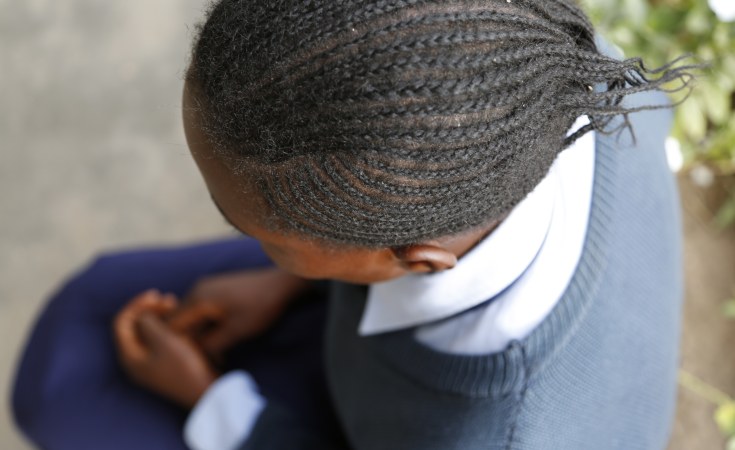Without enough community, family and school support, pregnant learners struggle to finish their schooling
- The Northern Cape Education Department says teenage pregnancy is contributing to school dropouts in the province.
- The province recorded more than 5,000 learners who were pregnant from April 2020 to June 2021.
- Researchers and education activists are calling on the department to provide more support at schools for pregnant learners.
In the Northern Cape Joe Morolong Local Municipality, only half the learners who start primary school make it to high school, and only 15% of all residents finish Grade 12, according to a recent report from the education department.
The Northern Cape Education Department has cited teenage pregnancy as a contributor to high dropout rates. Its Zero Dropout Campaign report documents worrying school dropout and completion rates in the province.
Other factors include a lack of parental support, unsafe journeys to school, pressure to earn an income, and taking risks to get noticed by "better-resourced groups", such as criminal gangs and sugar daddies.
"Very few girls go back to school after giving birth," says Frederick Ocansey of the Yethu Club in Kuruman, which is focused on reducing dropout rates.
Ocansey said they are approached by parents, school staff and members of the community who are concerned that a learner is at risk of dropping out. "We will then speak to the learner involved. Where the situation is too difficult for us to resolve, we involve a counsellor and a social worker," he said.
He said the community has high unemployment.
"We see how appalling the economic situation is and we see how most of the learners, especially the girls - because they don't have much support from their parents - get resources from older boys and as a result, some of them get pregnant and drop out of school," said Ocansey.
He said the education department should provide more counsellors at schools to help pregnant learners cope and to encourage them to finish their schooling. "They need to be motivated that they still need to be educated even though they are pregnant," said Ocansey.
Spokesperson for the department Geoffrey van der Merwe said 5,015 teenage pregnancies were recorded from April 2020 to June 2021 among learners aged ten to 19. Learners aged ten to 14 accounted for 154 of these pregnancies.
The Northern Cape has 556 public schools, of which 89 primary schools and 15 high schools are in the Joe Morolong Municipality.
"The prevalence of teenage pregnancies occurs across all districts, but mainly in the Frances Baard and John Taolo Gaetsewe districts. These figures are of great concern to the department," said Van der Merwe.
He said teenage pregnancies were also related to drug and alcohol abuse.
Equal Education researchers Jane Borman and Stacey Jacobs said the psychological impact of a pregnancy also affected male learners, though "female learners are more likely than males to experience social stigma and more likely to have their schooling interrupted because of a pregnancy".
The prospect of having to financially care for a child may also cause the learner to look for employment instead of completing school.
In 2020, at the height of the Covid pandemic, the average annual learner dropout rate in the Northern Cape rose from 4% (about 11,000 learners) from Grades R to 12 to 7% (21,415 learners). By 2021, there was "a historic decrease" and the dropout rate fell to 2.8%, said van der Merwe.


